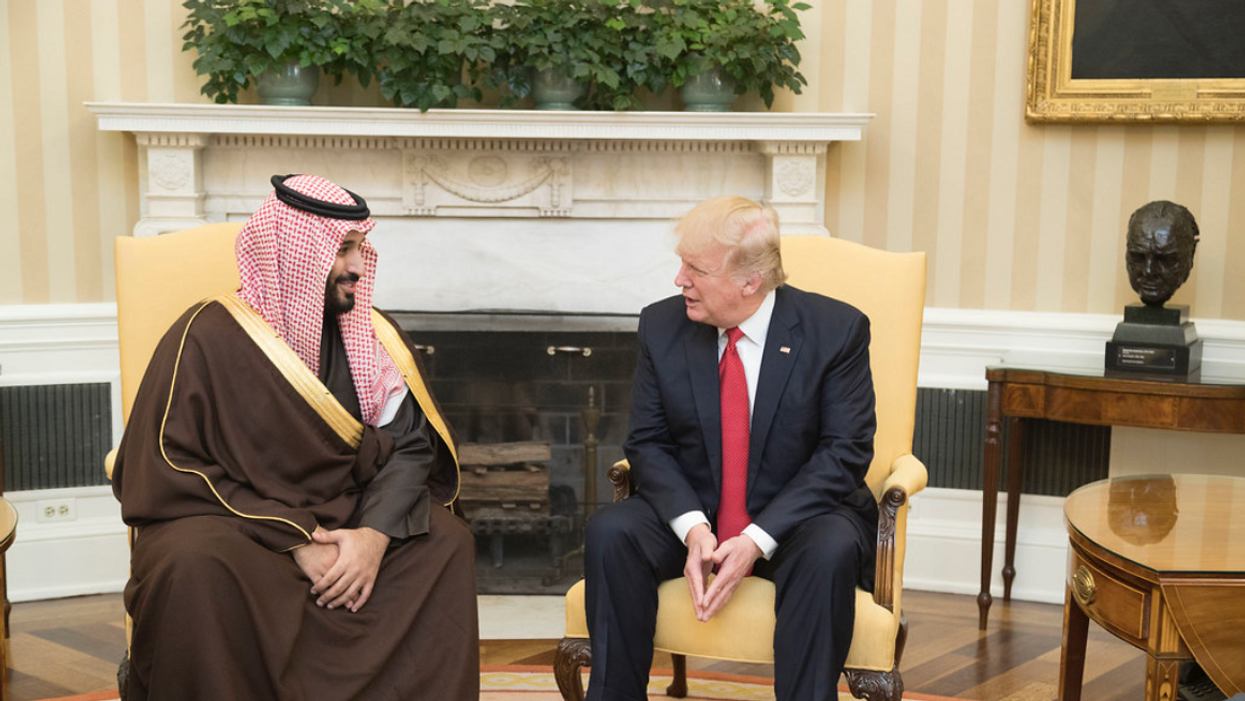
Intel Report Confirms MBS Ordered Khashoggi Assassination
Reprinted with permission from Daily Kos
After a last-minute delay, and something of a stutter step in which Friday's release appeared to be momentarily posted, then withdrawn, then posted again, the truth about the U.S. intelligence assessment of journalist Jamal Khashoggi's murder is finally public. And that truth is evident on the very first line of the brief document's executive summary.
"We assess that Saudi Arabia's Crown Prince Muhammad bin Salman approved an operation in Istanbul to capture or kill Saudi Journalist Jamal Khashoggi."
Since that operation including sending someone with a bone saw, and a body double to wear Khashoggi's clothes around Istanbul after his death, there can be little doubt that the actual intention of the squad that bin Salman sent to Istanbul was to capture, followed by definitely kill.
Following this release, it's been announced that the Treasury Department will seek sanctions against the former head of Saudi intelligence, Gen. Ahmed al-Asiri, and against members of the Saudi Rapid Intervention Force (RIF) who were involved in the assassination. However, it also seems that if anything is going to happen to the man who instigated, ordered, and paid for this murder, it's not going to happen today. Because there are no plans to sanction bin Salman.
But that doesn't mean there will be no consequences.
While the date on the cover of the barely over two-page document may say 2021, there's little doubt that this report was prepared shortly after Khashoggi's murder. Meaning that all the time that Donald Trump and Jared Kushner were laughing it up with bin Salman, they knew he was a murderer.
Honestly, it's not as if there was any real doubt. As the report makes clear, at the time of Khashoggi's murder, bin Salman had consolidated his authority and had an absolute stranglehold over Saudi Arabia. The idea that a hit team was going to travel to another country and carry out a gruesome torture and execution without bin Salman's express orders was always ridiculous. But of course, not so ridiculous that bin Salman wasn't willing to execute some of his lieutenants to make a show of "investigating" the death, and not so ridiculous that Trump was willing to offend his most admired brutal dictator.
The failure to directly sanction bin Salman appears to be a recognition that this would essentially represent cutting off the U.S./Saudi relationship, because, for all intents and purposes, there is no Saudi government other than bin Salman. Generating such a deliberate schism could affect the security of other allied nations in the Middle East, including Qatar—which has already suffered from Donald Trump's endorsement of a Saudi-sponsored blockade around the location, that includes the largest U.S. military base in the region. It could also disrupt efforts to secure peace for Israel.
Following the release, Rep. Adam Schiff issued a statement saying that he was disappointed that the Biden administration hadn't found a way to sanction bin Salman personally without causing a break in the international relationship. But still: "This is an official U.S. government statement that the crown prince of Saudi Arabia has blood on his hands, and that blood belongs to an American resident and journalist. And I think that's very powerful."
Not surprisingly, the Saudi government has issued its own statement in response.
"The Ministry notes that the government of the Kingdom of Saudi Arabia completely rejects the negative, false and unacceptable assessment in the report pertaining to the Kingdom's leadership, and notes that the report contained inaccurate information and conclusions."
The release of the report appears to be intended to set a new tone with bin Salman. Biden has made it clear that they're not "pals." He has no intention of building a hotel in Riyadh or developing a golf course in the desert. The United States recognizes the importance of Saudi Arabia in the region, but doesn't intend to give tacit approval to its brutal acts.
Don't expect this to be the last word on Khashoggi. Or on the U.S. response.
- Long-Buried Report Proves Trump Knew Saudi Prince Ordered ... ›
- Kushner Slammed Over Response To Khashoggi Killing - National ... ›
- Don Jr. Spreads Bogus Claims Implicating Khashoggi In Terrorism ... ›
- Accountability for the Murder of Jamal Khashoggi - United States ... ›
- Intel report finds Saudi crown prince approved Khashoggi murder ... ›
- The secret tapes of Jamal Khashoggi's murder - BBC News ›
- Jamal Khashoggi: All you need to know about Saudi journalist's ... ›
- How the man behind Khashoggi murder ran the killing via Skype ... ›
- Khashoggi murder: Saudi crown prince 'ordered, monitored' killing ... ›
- Jamal Khashoggi: CIA 'blames Saudi prince for murder' - BBC News ›
- C.I.A. Concludes That Saudi Crown Prince Ordered Khashoggi ... ›
- 'Credible evidence' links MBS to Khashoggi's murder: UN report ... ›
- CIA concludes Saudi crown prince ordered Jamal Khashoggi's ... ›








